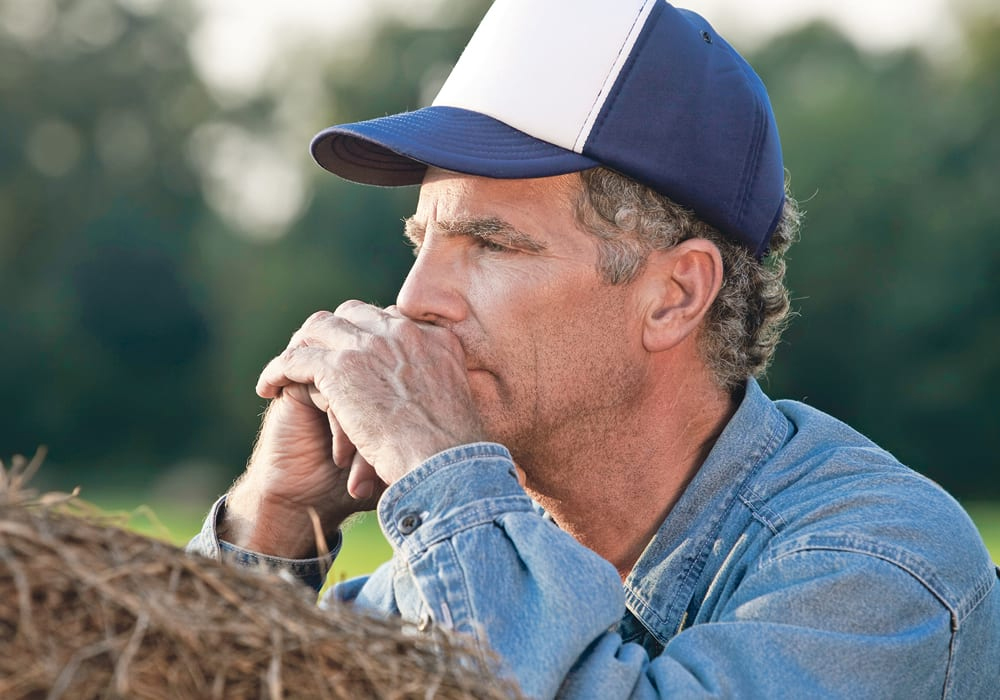Roberta Galbraith, who farms near Minnedosa, Man., understands how farmers think.
Most producers are problem solvers. If a tractor or machine on the farm is broken, they want to fix it, immediately.
That may explain why some farmers struggle with the health-care system, especially when it comes to things like depression and anxiety.
Such issues cannot be readily fixed.
And waiting weeks or months to see a health-care professional sends a “why bother” message to many producers.
“The stories we were hearing, farmers who wanted to see somebody… they couldn’t get in to (see someone) for significant weeks,” said Galbraith. “Having to sit and wait was causing an issue.”
Read Also

Know what costs are involved in keeping crops in the bin
When you’re looking at full bins and rising calf prices, the human reflex is to hold on and hope for more. That’s not a plan. It’s a bet. Storage has a price tag.
To address that issue and help farmers get timely help, Galbraith and others have developed the Manitoba Farmer Wellness Program.
On Jan. 18 they introduced the program, which has a mission of providing confidential, no-cost counselling and support to Manitoba farm families.
Farmers and their immediate family members can get six (one hour) sessions with a counsellor. The sessions are free and flexible because they can happen by video chat, in-person or over the phone.
In most cases, six sessions won’t be enough to solve a complex problem like depression or anxiety. But the counselling could be a bridge to longer-term help, possibly from a psychologist or a support program.
The Manitoba program is based on an initiative in Ontario, where the Farmer Wellness Program offers four, free counselling sessions for producers in seven counties.
Prince Edward Island has a similar program.
“(This) is being done in Ontario and P.E.I. with great success,” Galbraith said.
There are other supports for Manitoba farmers, such as the Manitoba Farm and Rural Stress Line. The leaders of the new program believe it will provide a unique service.
“Farmers have a demanding lifestyle, and stigma remains a barrier for some to reach out for help,” said MFWP board member Gerry Friesen. “The (program) has been created to address the identified gap in availability of one-on-one counselling services for farmers.”
Friesen and the other leaders of MFWP have posted job ads, seeking counsellors for the program. One of the requirements is a basic knowledge of farming.
“We don’t want counsellors that don’t have a connection to agriculture,” said Galbraith, who was formerly the manager of member relations with the Manitoba Canola Growers Association.
Few producers want to spend an entire counselling session explaining how supply management works, or why it’s difficult to hire farm employees right now.
“Or the fact that you can’t take time off because the cows need to be fed every day,” Galbraith added.
Once counsellors are on board, the MFWP plans to start booking appointments in March.
The counselling program is free, so Galbraith and others will be busy this winter finding groups and individuals willing to support the program.
As of Jan. 20, RNR Galbraith Farms, along with Manitoba Farmers with Disabilities, were listed as sponsors on the program’s website.
“There’s enough interest right now that we’re confident that things will move along and will be ready to roll in March,” Galbraith said. “But we do want and are seeking support from the industry…. We will be making the rounds, asking for people and organizations to participate.”
Mental health on the farm
University of Guelph research suggests that many farmers struggle with mental health issues:
- Fifty-eight percent of farmers experience symptoms of anxiety.
- Thirty-five percent have signs of depression.
- Forty percent are reluctant to get help because of the stigma related to mental health problems.
Source: University of Guelph
For more information, visit manitobafarmerwellness.ca/.
















